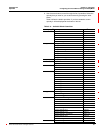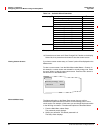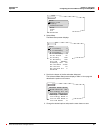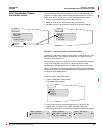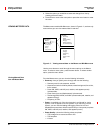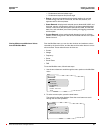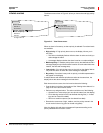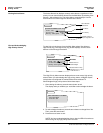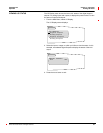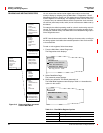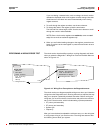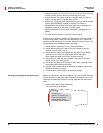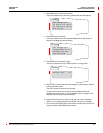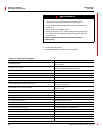
63230-300-212 Chapter 3—Operation
April 2001 Viewing Alarms
41
© 2001 Schneider Electric All Rights Reserved
TheAlarmsmenushowninFigure3–8, lets you view active and high priority
alarms.
Figure 3–8: View Alarms menu
When an alarm is first set up, an alarm priority is selected. Four alarm levels
are available:
• High priority—if high priority alarm occurs, the display informs you in
two ways:
— The
LED on the display flashes while the alarm is active and until you
acknowledge the alarm
— A message displays whether the alarm is active or unacknowledged.
• Medium priority—if medium priority alarm occurs, the
LED flashes and a
message displays only while the alarm is active. Once the alarm becomes
inactive, the
LED and message stop.
• Low priority—if low priority alarm occurs, the
LED on the display flashes
only while the alarm is active. No alarm message is displayed.
• No priority—if an alarm is setup with no priority, no visible representation
will appear on the display.
If multiple alarms with different priorities are active at the same time, the
display shows the alarm message for the last alarm.
Each time an alarm occurs, the circuit monitor does the following:
• Puts the alarm in the list of active alarms. See “ViewingActiveAlarms” on
page 42 for more about active alarms.
• Performs any assigned action. The action could be one of the following:
— Operate one or more relays (you can view the status from the display)
— Force data log entries into the user-defined data log files (1–14 data
logscanbeviewedfrom
SMS)
— Performawaveformcapture(canbeviewedfrom
SMS)
• Records the occurrence of high, medium, and low priority events in the
circuit monitor’s alarm Log (can be viewed using
SMS).
Also, the display
LED and alarm messages will operate according to the
priority selected when an alarm occurs.
VIEWING ALARMS
MAIN MENU
Meters
Min/Max
View Alarms
I/O Display
Resets
Setup
Diagnostics
VIEW ALARMS
Active Alarms List
High Priority Log



